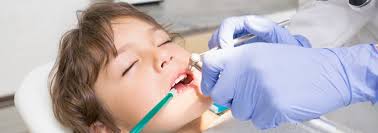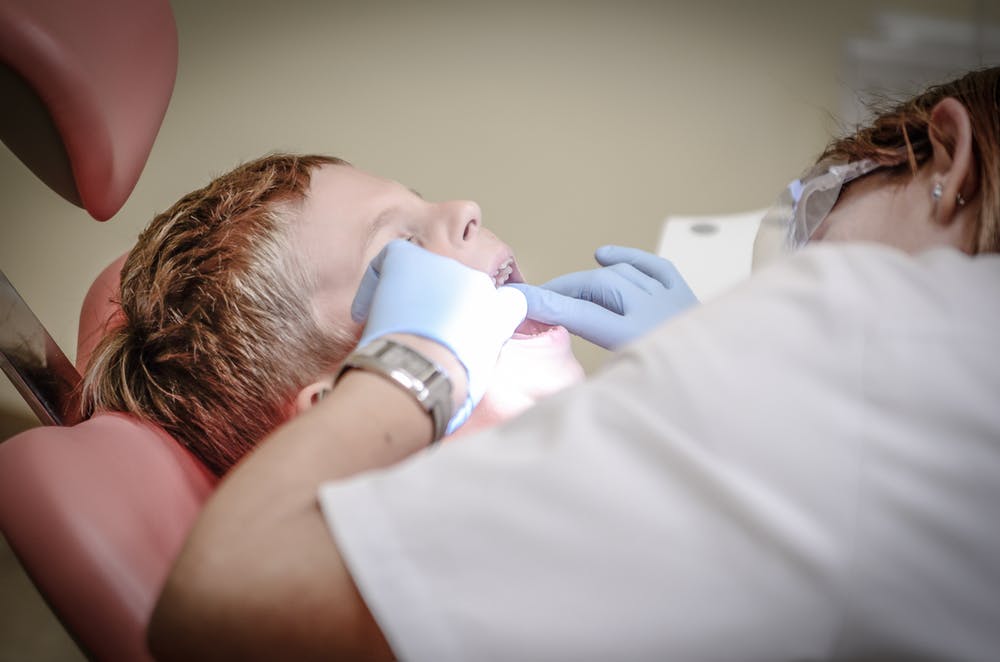Needless to say, when the first tooth of your baby sprouts out, it’s going to be a delightful moment for you. You might also be wondering as to when you should plan your first visit to the dentist with your baby. As suggested by the American Academy of Pediatrics and the American Dental Association, a dentist should see a baby by the age of 1 or within 6 months after his/her first tooth appears.
How to Prepare?
Preparing your child: Schedule your appointment in the morning, when children are alert and fresh. Prior to making an appointment, be positive while preparing your child about the upcoming session. In order to alleviate their fears, it is a good idea to read out books. Also, watch fun videos that will make their first dental visit fun. Make sure your baby is well-fed so they do not end up feeling hungry while the check-up is going on.
Preparing yourself: Experts usually suggest discussing your concerns & questions with the dentist before the visit. In fact, you can fill out the necessary patient forms beforehand, helps keep you stress-free from such formalities at the dental clinic. Make sure you do not let your anxieties show, if you have any, as these negative emotions may spill onto them.
Children need moral support from their parents, particularly for such first-time experiences. Maintaining an upbeat attitude when you are talking about the dentist, especially on the day of the visit is essential. It is also important to furnish your child’s complete medical history for the dentist’s convenience.
First Visit- What to Expect?
The first visit to the dentist will, in all likelihood, turn out to be pretty short, involving negligible treatment.
Parents often wonder if it is necessary, at all, since baby teeth are brand new and temporary. According to medical experts, early dental visits are very crucial for the following reasons:
- Any signs of tooth decay, even in a toddler, should be dealt with at the earliest. If neglected, it can lead to decay in permanent teeth.
- If the dentist deems it necessary, he may prescribe fluoride treatment after duly assessing your baby’s teeth. He might also recommend it as a protection against future decay, especially in the formative years.
- He also examines your baby’s gums, jaw, and oral tissues to make sure everything is perfectly fine.
- The first dental visit holds immense significance. Since he will make you aware of the basics of oral health care for children and discuss dental issues. For example, it is not a good idea to let an infant fall asleep with a juice or milk bottle in his/her mouth. Since prolonged contact with such sugary solutions increases the chances of developing cavities eventually.
- You can have your queries answered, touching distinct subjects like oral habits, developmental landmarks, teething, nourishment, etc.
Why is it Better to go for a Pediatric Dentist-
It may confuse you at first, whether to take your child to a normal dentist or a special dentist? With a couple of additional years of education under their belt, a pediatric dentist can detect your child’s dental problem in an instant and are well equipped to treat their dental woes smoothly. The doctor along with their staff are well equipped to put your child at ease just before their check-up, which is pivotal to their first dental visit.
To put it in simpler terms, they know how to deal with children who are afraid of the dentist or dental examination! You will find their clinic to be quite child-friendly and vibrant which makes a lot of difference to your child’s Going ahead, you can consider having a single pediatric dentist examine your child as he/she is growing up. This will establish a sense of familiarity between the dentist and your child. Besides, it ensures that the dentist will also be thoroughly acquainted with your child’s medical history, particularly oral health.
Dental Sedation
If your child suffers from dental pain or infection, they will need immediate treatment, which may mean that your baby will have have to go through general anesthesia or dental sedation. This process involves the use of medication to make your child absolutely calm for assisting in the dental procedure, without making them fall sound asleep.

Usually, dental sedation is recommended by dentists when the treatment procedure is long and complex, or if the dentist feels that the noise the drill may be scary to the child. The major types of sedation provided by dentists include oral sedation, nitrous oxide, and intravenous sedation. It is a safe and fuss-free procedure, helping you put all your worries and anxieties to rest. Make sure you get clear information from the dentist concerning the preparation and proper care after the visit is over.
General Tips for Your Baby’s First Dental Visit:
The appointment should be treated as something simple, routine, and positive. This will ensure that your child also develops a much better attitude towards the entire experience.
- Don’t give caffeine or sugar to your child before the visit.
- If possible, reach the clinic a little early. It will give time to your child to get accustomed to the environment. You can also bring along their favorite soft toy to keep them engaged.
- It is always advisable to examine your child at home. Even if he/she does not have any teeth, wipe his/her gums with a clean wet washcloth after meals, in a gentle manner. Stimulating his/her mouth with a soft, small brush can also be considered. The basic idea is to prepare him/her for the first dental experience by familiarizing her with such practices.
- Start soon! Planning your first visit at an early stage will allow the dentist to guide you about proper brushing habits as well as how to prepare tooth-friendly meals and snacks. Needless to say, it also paves the way for early detection of any signs of decay or other dental issues.
Conclusion
When it comes to your child’s attitude towards the dentist, you are their best role model. Please think of the visit to the dentist as a positive step towards healthy teeth. Your child will follow your footsteps and treat it the same way!
About the author
Emma Gill is a passionate writer & guest blogger. Writing helps her to improve her knowledge, skills & understanding about the specific industry. She loves writing & sharing her knowledge mostly in the health industry. She believes health is the real wealth & want to spread her belief across the world. Apart from writing, she loves traveling & cooking.


